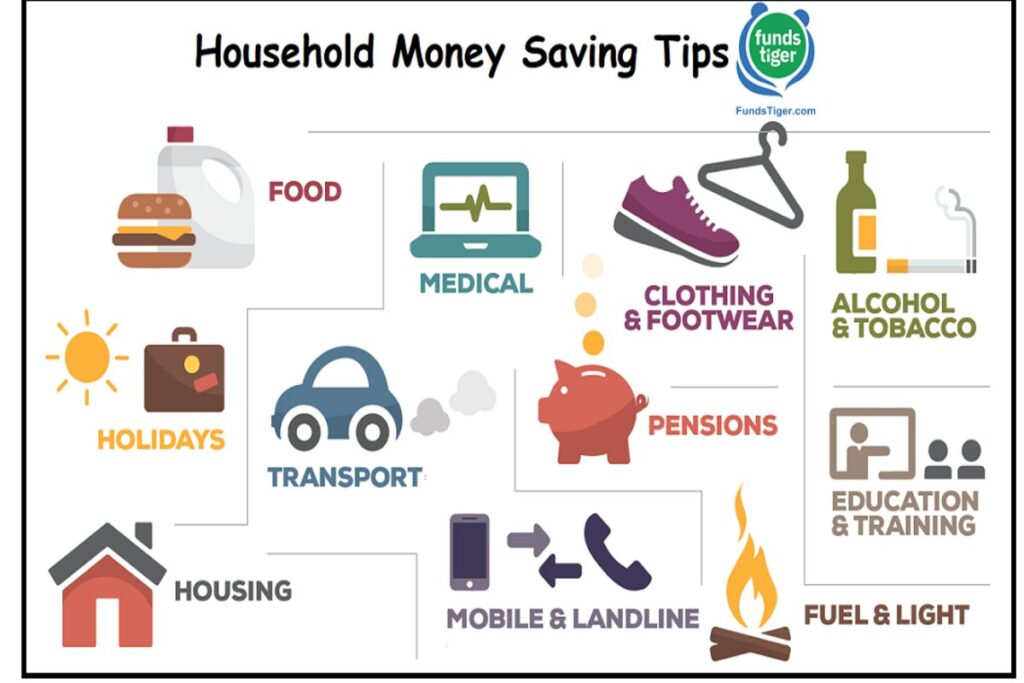Now, more than ever, money-saving tips for families have become essential. National inflation has raised the cost of living to an all-time high, so families need to devise ways to maximize income.
People’s natural inclination toward savings in times like this is that it is downright impossible. However, we have 15 brilliant money-saving tips for your family that would work irrespective of economic circumstances.
1. Install a Smart Meter in Your Home
A smart meter is a digital device connected to your utility supply: electricity, water, and gas. Such meters help monitor your utility consumption through a digital display. In the long run, this device could help your family save big on utilities as it helps identify excesses and where consumption regulation is necessary.
2. Lookout for Bundle Offers
Bundle offers involve subscribing to multiple services with a single payment scheme. For example, some phone companies offer voice, broadband, and streaming services in a single subscription plan. While bundle plans may come off as a heavy investment, a closer look reveals it is cost-saving.
ALSO READ: 10 Saving Tips for Moms
3. Wean Yourself of the Brand Loyalty Craze
If a brand offers the best quality and prices around, there’s nothing wrong with sticking with them. However, we all know no such brand exists. Shopping at Walmart could help you save money on groceries and offer terrible prices on hardware tools. Summarily, endeavor to shop around before settling for ‘the best deal.’
4. Use Comparison Sites to Save Cost

Some websites are designed to help shoppers compare the prices of items from multiple vendors. Being ignorant of another store that offers lower prices may make you settle for rip-off prices. Yes, many of these sites are loaded with ads, but the end of visiting them often justifies the means.
5. Exploits Discount Offers and Vouchers
Never shy away from using discounts when one is presented to you. It would surprise you to know that most of the stores where you shop offer some form of discount. It could help ask the personnel on the ground about discount codes whenever you’re out shopping. The online equivalent is voucher codes. You could save between 5 – 20% on your shopping bill when shopping online.
6. Cut Down On Non-Essential Miscellaneous Expenses
Identifying non-essential expenses is plausible. For families that operate a budget, all you need to do is go through your priorities and cut out things that are difficult to afford at the moment. In some instances, such expenses might even be legitimate but require pruning to accommodate progressive exploits like retirement savings.
7. Be Selective With Digital Entertainment

The average family has active subscriptions to multiple streaming services. Interestingly, many use only one of these services frequently, while the others are simply redundant. Stick to entertainment services that your family uses frequently and delist redundant ones.
8. Audit Your Monthly and Yearly Subscriptions
Gym subscriptions that come with the New Year resolutions, digital newspapers, app subscriptions, and the list goes on. In today’s fast-paced world, keeping track of online subscriptions from six months ago may be pretty difficult. So, occasionally go through your iPhone or PayPal account to identify those unused subscriptions that keep deducting money, monthly or yearly, from your coffers.
9. Create a Collective Family Budget
It’s not enough for dad or mum to operate individual budgets; it helps if the entire family understands how the finances are doing. So, work out a method of keeping everyone in the loop regarding how much the family earns, spends, saves, and invests. This collective awareness will dampen the crisis when there’s a need to cut costs and save more.
10. Draw a Clear Line Between Essentials and Non-Essentials
Your teenage son has financial priorities, and your spouse does too. However, the entire family must be on the same page about what goes on the chopping block when the family’s finances are in jeopardy. So, during family budget sessions, it may be safe to place conditional clauses on some expenses while prioritizing recurrent essentials.
11. Get Your Kids Started On Financial Responsibility

To teach your kids financial responsibility, give them pocket money and encourage them to earn from other sources. Doing this makes them financially responsible and gets them to appreciate the actual worth of the money they spend. When a child earns $10 per week, it’s unlikely for them to spend it all at once, knowing they are not getting another till the coming week.
12. Teach Your Kids How to Budget, Track Expenses and Save
Once your child starts earning allowances or doing part-time jobs on the side, they become ripe to learn the rudiments of budgeting, tracking expenses, and saving. Don’t leave them to the whims of gizmo-waving marketers and temptations to engage in impulse buying, but teach them to control their financial emotions and to have a healthy relationship with money.
ALSO READ: 10 Budgeting Tips for Families
13. Be Minimalistic With Birthdays and Celebrations
You don’t have to empty your savings account for a birthday or some other celebration. Indeed, the feeling of togetherness makes a celebration more exciting and enjoyable than splashing on all the money in the world. Teach your family to always celebrate on a budget. Remember, your kids are watching, and how you spend money during celebrations will likely rub off on them.
14. Declutter and Sell Your Used Items
You buy a new lawn mower every other year but line the old ones up in the garage like some sort of medal. Check around your property for items that are still in usable condition but no longer of utility to your family. You could sell such items to make some extra money, or you could donate them to charity.
15. Buy Quality Secondhand Items

Some quality secondhand items sometimes have more utility than new ones. On online platforms like Facebook Marketplace and eBay, you can get attractive deals on fairly used items and save considerable amounts. Just be careful of fraudsters and ascertain the item’s quality before paying.
So, there you have it! Feel free to tweak and tailor our 15 money-saving tips for Families. Our primary goal is to reveal clever ways to save money for you and your family.

